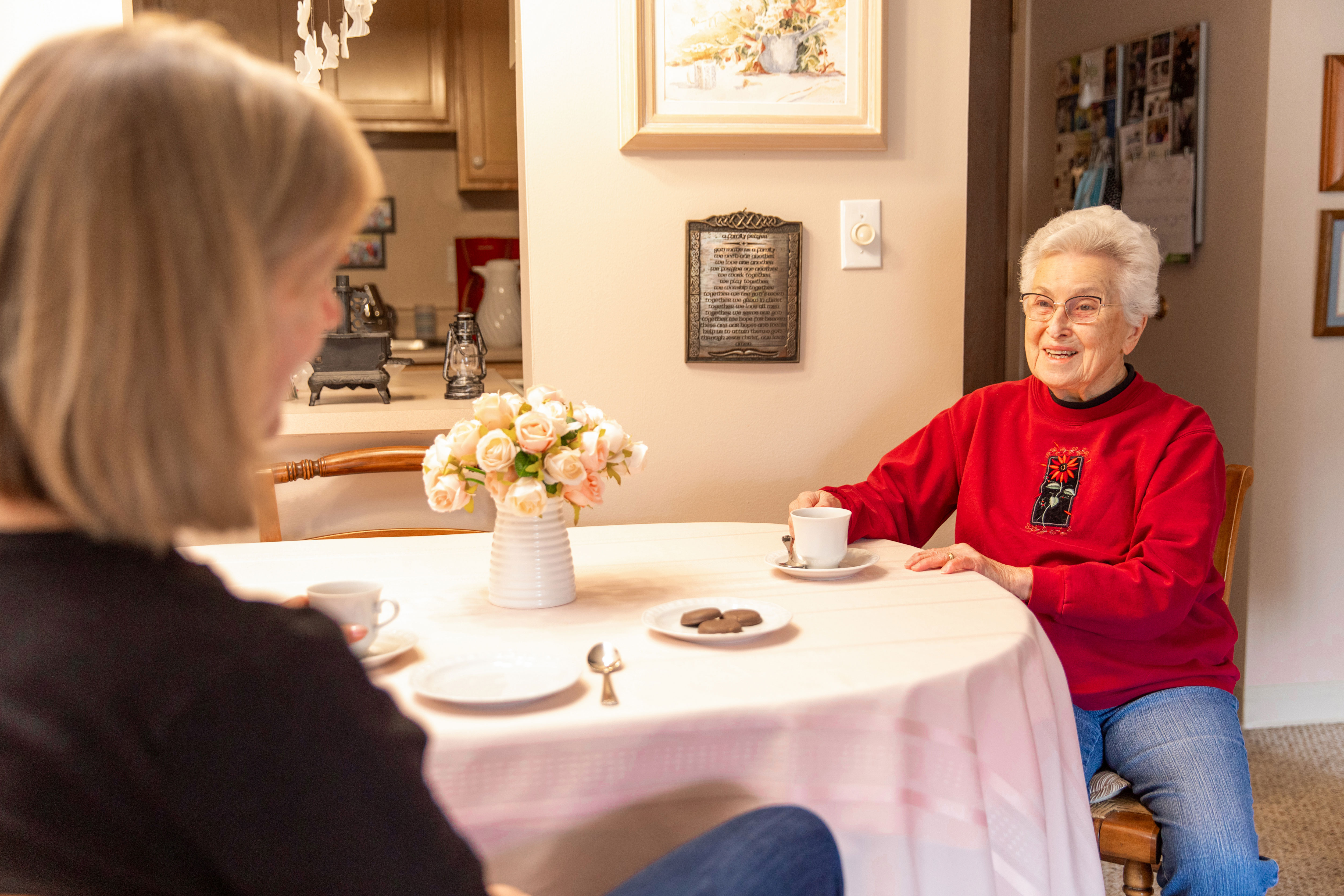Senior Living: Starting the Conversation with Parents
Talking to your parents about moving to a senior living community can be emotionally tough. You care about them, want them to be safe and live the remainder of their lives in comfort and with care. They may consider a move to a senior community is something to avoid. But studies have shown that the social, mental and physical benefits of living in a senior community can actually improve the longevity of life. Senior living communities may not be for everyone, but if you’re interested in discussing the possibility with your parent(s), we have some tips.
It’s Never Too Early to Discuss
Even if your parents are living safely and happily in their own home, start a discussion now about their vision for how they’d like to live as they age. It doesn’t need to be a deep, involved conversation if that intimidates you – simply ask if they’ve given some thought to what they envision their later years to look like. Do they have a plan or are there things they’d like to research to learn more?
Ideally, we’d all like to live in our own homes, taking care of ourselves until the end of our lives. But considerations need to be made for a medical, physical or other situation that could affect their safety or well-being while living on their own. Even if you’d like to be the one to care for them when needed, what if you aren’t able to provide the assistance or care they need on a daily basis – what would be the ideal situation for them? Do they have long-term insurance or savings for home health care or a move to a community of their choice?
If you are talking with a couple, what are the plans if one becomes sick and needs daily care beyond what their spouse or family can provide – would they both like to go to the same senior living community? What if one parent passes, will the survivor stay and take care of the home themselves or would it be better to sell and move to a senior community? What would each parent like for the other once they’re gone?
Research, Don’t Pressure
If they aren’t ready, or willing, to talk about this yet, don’t pressure them. You can re-visit the conversation later while still beginning to research available options, learning about different levels of care and what signs to look for when your parents may need in-home care or a move to an assisted living facility down the road. The earlier you start to research and prepare, either with them or on your own, the more comfortable you will be when the time for decisions need to be made.
The key is to avoid emergency situations, where a parent experiences an accident or medical situation and they are no longer safe living at home. In these cases, immediate decisions need to be made and the time to make well thought-out decisions becomes increasingly constrained. It benefits both you and your parent(s) to have already researched and had conversations about where they’d like to go before a decision has to be made quickly.
When You Start to Have Concerns
You may see your parents frequently, or even just once a year over a holiday, but if you start to have concerns about their health and well-being while living in their own home, you may want to start keeping track of those concerns. Start a list of concerns, which may include one or more of the following: falls, an unusually or progressively cluttered/disorganized home, trouble with personal care (bathing, dressing, etc.), unpaid bills, forgetting medication, inability to complete yard or house work, complaints about loneliness or sadness. It may help to talk to other siblings or family friends who may also notice some changes.
Instead of approaching your parent(s) with your list, simply ask them if they have concerns about their health or safety at home. Ask about some of the more pressing concerns and if they would like help in those areas. In some cases, a home health aid or visits by friends/family may be all the assistance they need. If that’s the case, it is another opportunity to discuss what they’d like when they may need more care than the occasional home visit.
If they need more regular assistance to keep them healthy and safe, start researching senior living communities and levels of care. It’s also helpful to research the physical, emotional and social benefits of senior living, which has been shown to increase physical activity and even longevity for senior adults. Discuss the different options and benefits with your parents, who may have preconceived ideas of what senior communities offer. Visit some communities to provide a realistic view of senior living – check on pricing and services, and talk with current residents about their experiences.
Listen to Their Concerns
It may make complete sense to you for your parents to move to a senior living community, but for them, it may trigger a sense of loss and/or anxiety, among other emotions. Their fears and/or concerns are real and deserve to be heard with empathy. Listen, affirm their feelings, and offer the research you’ve conducted to help them better understand the reality or options they may have. Most senior living communities will be happy to help answer questions or point you to resources with answers. If they don’t offer either, that should be a red flag!
The best way to keep from overwhelming your parents is to take it slow. Avoid overloading them with information or decisions that need to be made quickly. This is another reason to start early – it is important that they feel like they are part of the decision, not that a decision is being made for them when there’s not enough time to think about it and come to peace with a decision.
Give Them Time
As we age, changes often become increasingly difficult. It is comforting to know what to expect and to be familiar with your surroundings. While research has shown that senior adults living in senior communities can be emotionally and physically healthier than seniors who remain at home, the move can appear daunting and overwhelming to a senior who doesn’t know what to expect.
Visiting a community they are interested in can help ease them into a final decision. Talking with residents about their daily lives, social opportunities and amenities can help provide real-world examples of what their life could look like while living there.
Consult Professional Resources
If you’re still unsure where to start, there are many caregiver and aging adult resources provided by the state, nonprofit organizations and senior living facilities as well.
Some resources include*:
- Iowa Department on Aging: Iowaaging.gov
- Aging Resources of Central Iowa: agingresources.com
- 2-1-1: 211iowa.org
- AgingCare: agingcare.com
- Eldercare Locator: eldercare.acl.gov
*Disclaimer: Luther Park Community is not responsible for information or advice given by others, including information from third party websites and other providers.


